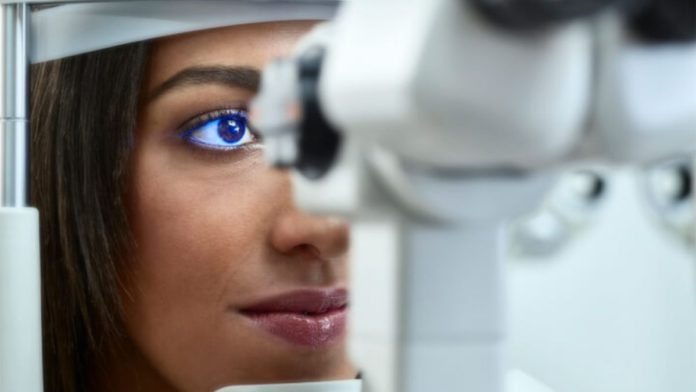Sankara eye foundation and Leben care are developing cloud-based artificial intelligence called Netra.AI to screen patients with vision loss. The project will be using Intel’s AI tools to identify retinal conditions in a short period with the same accuracy as doctors.
The cloud-based AI solution uses deep learning to recognize retinal conditions in a short time. It can accurately identify diabetic retinopathy (DR), reducing the burden of screening on vitreoretinal surgeons. The lack of trained retinal professionals, especially in remote, rural areas, limits effective screening of asymptomatic patients, AI technologies like this help resolve these issues to some extent.
The AI model analyses images from portable, technician-operated fundus camera devices and passes on the results of DR grading through a cloud-based web portal. It uses AI algorithms, developed along with leading retina experts, with a four-step deep convolutional neural network (DCNN). The DCNN helps identify the DR stage and annotate lesions based on the pixel density in the fundus images. The solution can also be expanded to aid with other retinal/vision conditions and glaucoma, helping in reducing the screening burden and emphasizing resources on patients who need immediate care and intervention.
Read more: Nvidia Launches $100M Supercomputers For Healthcare Research
Netra.AI is enhanced with Intel Xeon Scalable processorswith built-in Intel Deep Learning Boost and Intel Advanced Vector Extension 512 acceleration. Intel’s architecture provides flexibility, robust data protection, and quick processing of extensive data. Intel-optimized images are used for TensorFlow, Apache, MXNet, and PyTorch, and Intel’s performance libraries to enhance the application performance.
According to Intel professionals, the system can be used for screening retinal illnesses in large populations with limited resources and infrastructure. The AI system delivers an outstanding sensitivity of 99.7 percent and specificity of 98.5 percent for the detection of DR. The technology has been demonstrated in India and other countries in Asia and Africa.


